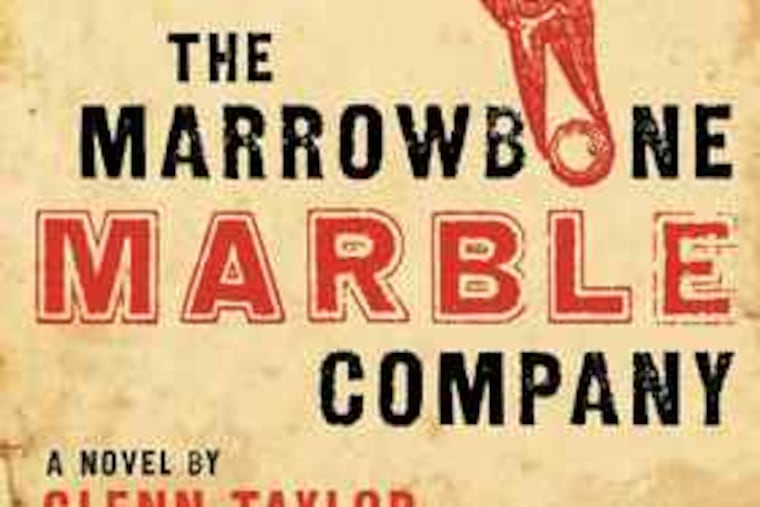Predictable characters, worn words
Many of us like television shows, even the predictable programs in which the characters consistently react the way you expect. In these shows, the ending isn't so much a revelation as a logical conclusion.

By Glenn Taylor
Ecco Press. 360 pp. $24.99 nolead ends
nolead begins
Reviewed by Sherrie Flick
Many of us like television shows, even the predictable programs in which the characters consistently react the way you expect. In these shows, the ending isn't so much a revelation as a logical conclusion.
It can be comforting to watch these shows and not have to think much. On the other hand, I try to read a lot. Reading makes me happy to be alive, and some days when it's hot and humid and oil is spilling into the Gulf of Mexico, I need something to revive my faith in humanity.
This brings me to The Marrowbone Marble Company. I believe that Glenn Taylor had good intentions in writing this book.
It centers on World War II vets, one white (Loyal Ledford), one black (Mack Wells), and their longing to bring the races together in harmony in a shared community that operates a marble factory.
It explores how soldiers returned to the United States damaged, and perhaps ready to see the world anew. It also explores race relations in West Virginia from 1941 to 1969, a mirror, to a degree, of race relations in this country.
But the characters in this book are as predictable as the bad guys in some TV series. At 360 pages, the book reads like an outline for what could be an entirely different story. It unravels, rambling like a draft in which the author puts big ideas on paper before refining and complicating them for the finished novel.
The men spit and wink and pass gas in nearly every chapter. There is so much spitting that I started underlining the words spit and spat as I read. For example:
"What . . . are you talking about? I'm five foot ten." Fury snorted morning snot and spat it on the ground.
Dimple coughed and brought up a heavy load, spat it on the ground.
Maynard cleared his throat and spat again. Nerves had always produced in him an allergy and an abundance of phlegm.
There is a sort of Reservoir Dogs element to the swagger of the men in this book, where there are bookies and paid-off sheriffs and politicians. But the banter that made Quentin Tarantino's movie fantastic isn't here. Instead, Taylor has used some worn-out language.
Children "crane their necks" and look up "wide-eyed." Women birth babies and garden. Ledford's wife, Rachel, wants to "raise her children up right." Ledford's daughter Mary has eyes that are "red as blood" after she stays up for nights watching over her brother Orb.
The book doesn't explore hope or redemption, but instead trudges through time with short chapters spanning years. It limps toward its conclusion and then concludes as the reader would expect.
If that's what you're looking for in a summer read, this is the book for you.